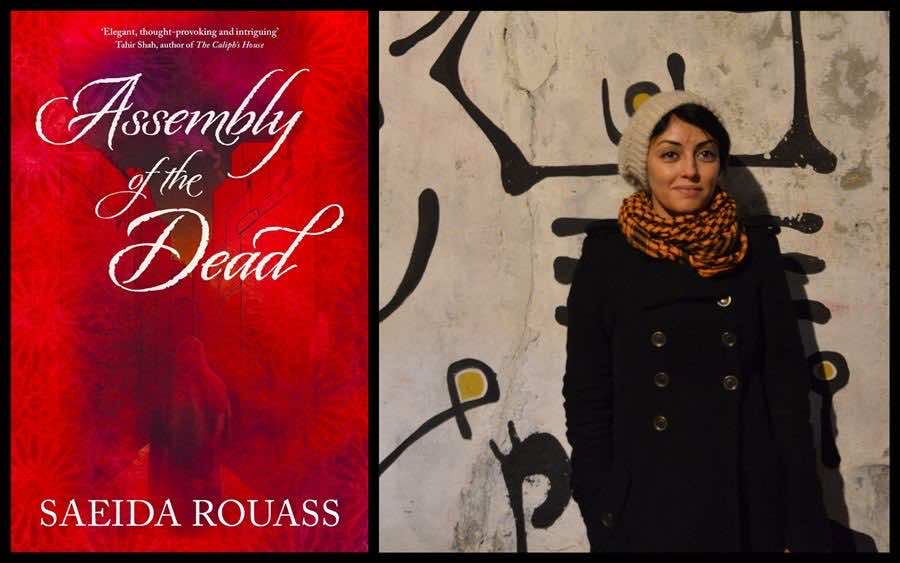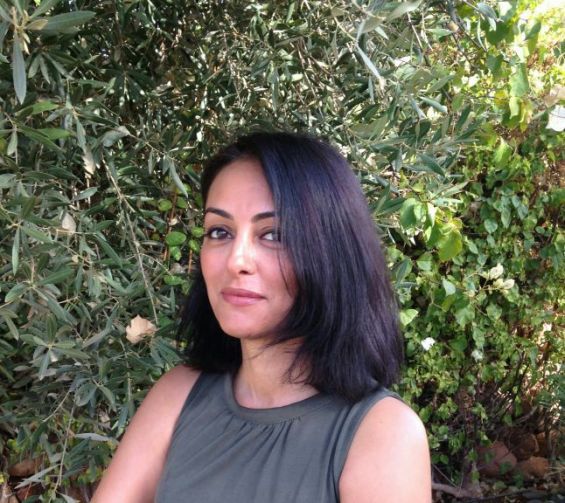Growing up, Saeida Rouass has always wanted to be a writer. Born in East London to a Moroccan family that left Larache in the 1960s, she had not had the chance to explore her writing and storytelling skills until she started traveling.
After graduating university, Saeida worked as a teacher. Later, she embarked on an international career, working as a project manager for various charities and international NGOs in several countries.
While working abroad, the Londoner kickstarted her writing adventure. Inspired by her stay in Egypt, in 2010, Saeida wrote her first book «Eighteen Days of Spring in Winter», which tells the story of a literature student in Cairo amid the revolution.
After her debut book was published, Saeida was urged by her publisher to keep writing. «I have always wanted to be a writer and I had this natural inclination for writing but I never really gave it the chance until later when I was living abroad», the writer told Yabiladi.
A Moroccan Jack the Ripper
Indeed, while Saeida was working for an environmental charity in Oman, she stumbled upon a story that was intriguing to the writer within her. It was the story of this 'Moorish Jack the Ripper', a Moroccan serial killer who lived in Marrakech in 1906.
«I came across this story that this old newspaper was calling the Moorish Jack the Ripper», she recalls. «A man who had been killing women in the Medina of Marrakech», she added. The story spoke to the Moroccan-British writer, as it combined elements of two cultures she was familiar with.

«I grew up in East London and I was very familiar with Jack the Ripper’s story who operated there and it felt powerful to me that there is this Moroccan equivalent of him that I have never heard of», Saeida said.
Curious about the story of Marrakech-based shoemaker Hadj Mohammed Mesfewi and the killings he orchestrated in the city, Saeida moved to Morocco. «I first thought it was a fake story, but when I went back to London in the summer I went to the British Library and I found all these other newspapers reporting about the murders in Morocco in 1906», she explained.
In Marrakech, Saeida lived for six months trying to collect records about Mesfewi’s killings and his background and learn about the city’s history. She later moved to Rabat before going back to London due to a family emergency.
A political turning point
Inspired by the Moorish Jack the Ripper, Saeida eventually wrote her book «Assembly of the Dead», where she tells about the cruel killings of the Mesfewi and how a brilliant investigator is trying to solve the crime.
Her book, however, was not only about the series of crimes that shook Marrakech at the time, but also about the historical turnover, Morocco was going through. «I wanted to write a detective story in this particular context», she explained. «1906 was when the Algeciras Conference took place, when Europe decided what it wanted to do with Morocco», she said. In the middle of this political turning point, Marrakech was going through rough times.
«While the city was hit by a locust infestation of the crops, tribal rebellions were turning against the sultan because of the European powers and people were scared of famine. Within this chaos, a man was killing women».
«I also wanted to include the women he targeted in the story. It was important to me they too were characters, and not just nameless victims or numbers», she stressed.
Saeida published her book and launched it in Marrakech, the set of her story. Later she received the offer of Hollywood producer Ronald L. Carr, who became interested in auctioning the book.
«In 2018, I did an event at Café Clock in Marrakech to launch the book. While visiting the same café later, the producer saw the poster of the book and ordered it. Because he was working on another film he wasn’t able to pursue it. It is only recently that he picked it and realized that he could work on this project».
Saeida’s book could be developed in the coming years into a mini-series with Farook al Alami, the Tangier detective, being a Sherlock Holmes-like protagonist for the drama. «During this period of history, there was all these kind of people like Sherlock Holmes who started developing interest in investigation and Farook is that kind of man», she explained.
A 1906 Moroccan investigator
But Farook, this witty and smart investigator, is meant to stay with Saeida’s readers for a trilogy she is currently developing. «Once I published the book, the publisher asked me what I wanted to do next and I said that I wanted to write a second book about Farook being in Fez and trying to investigate other crimes», she proudly declared.
This time, Farook will have to travel to Fez in 1912, another turning point in Morocco’s history, to solve other crimes. In 1920 and most precisely in the Rif, the detective will also be doing the same thing for the trilogy.

«I feel like I will be telling the story of colonization through Farook», the writer declared. Farook’s next adventure is to be released in 2021, due to the coronavirus crisis and the thorough research that goes with writing a historical novel.
Saeida’s novels about Morocco, however, changed more about her than her readers. «The book made my connection to Morocco stronger than what it was before», she stressed.
The London-native believes that her understanding of Morocco and its history has become greater, a feeling that she would love to transmit to English-speaking readers the world over.





 chargement...
chargement...












